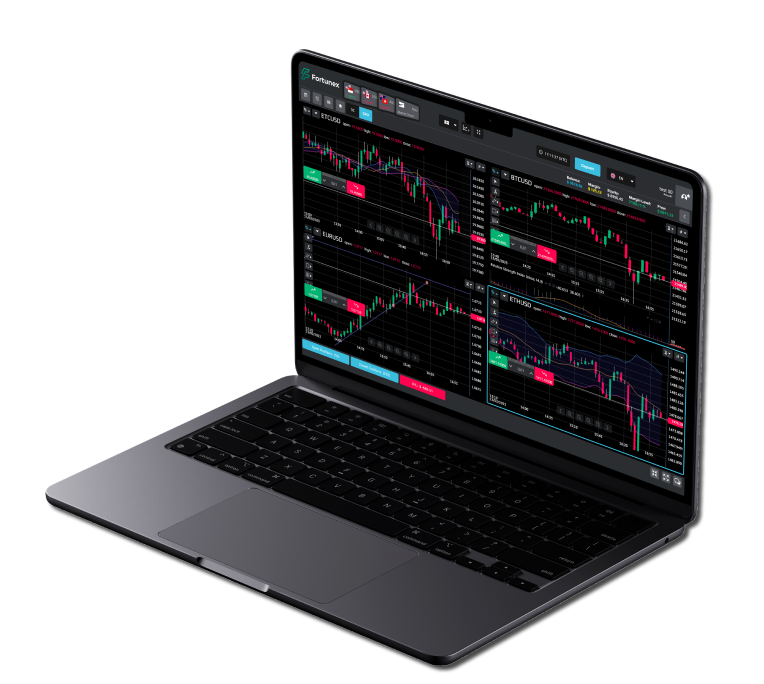Commodities
Benefit from fast order execution and tight spreads by trading Commodities CFDs
*Not all currency pairs are represented here. You can find the entire list on our trading platform
Embrace the world of commodities trading on our platform
-
Intuitive User Interface
-
Sophisticated Chart Tools
-
Comprehensive Risk Mitigation Features
-
Multi-Window View
-
Variety of Order Options

Explore Crypto Trading Insights
Explore our wealth of educational resources and state-of-the-art trading tools
What is
Commodities
The commodities market is a diverse and intricate financial landscape, encompassing various types of commodities, including metals, energy, agricultural products, and soft commodities. Soft commodities specifically refer to raw materials that are grown, such as coffee, cocoa, cotton, sugar, and soybeans. It is a market where traders can buy and sell contracts of these commodities to profit from price fluctuations
Similar to the foreign exchange market, the commodities market is traded on various platforms, including futures, options, and contracts for difference (CFDs). Among these, the CFD market is one of the most popular for retail traders, as it allows for easy buying and selling of contracts without the necessity of owning the actual underlying commodity.
In the commodities CFD market, significant international banks play a dominant role, providing their own quotes through electronic trading systems. The spot market acts as the reference point for these quotes, resulting in non-uniform prices across the market
Commodity prices are influenced by a multitude of factors, including supply and demand dynamics, geopolitical events, weather patterns, and economic indicators. For example, the price of coffee can be impacted by weather conditions in Brazil, the world's largest coffee producer, while the demand for soybeans may be influenced by the increasing popularity of plant-based diets.
In commodities trading, prices are typically quoted in US dollars per unit of the respective commodity. For instance, the price of cocoa might be quoted as $2,400 per tonne. Traders have the option to go long if they anticipate the price will rise or go short if they anticipate the price will fall. The profit or loss incurred from the trade is determined by the difference in price between the opening and closing of the trade.
The unit of measurement utilized in commodities trading varies for each commodity. For soft commodities, measurements are usually in tonnes, bushels, or pounds. Each commodity has a specific tick size, which represents the minimum price movement. For example, the tick size for cocoa is $1 per tonne.
Similar to forex trading, the spread plays a crucial role in commodities trading. The spread refers to the difference between the bid and ask prices and is influenced by market conditions, volatility, and liquidity. At Fortunex, we offer narrow spreads on soft commodities CFDs, enabling traders to engage in trading with reduced costs.

